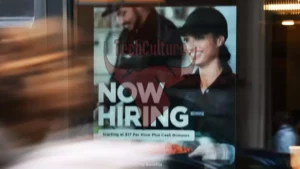In a recent interview, renowned musician Nick Cave expressed his disdain for the use of artificial intelligence in the songwriting process. Known for his raw and emotive lyrics, Cave has always been a staunch advocate for the power of human creativity. His criticism specifically targets OpenAI’s ChatGPT and similar AI systems that attempt to mimic the art of songwriting.
Cave’s argument stems from his belief that AI-generated music lacks the depth and authenticity that comes from human experience and emotion. He argues that these AI systems are merely imitators, lacking the ability to truly connect with the human condition. For him, music is a deeply personal and cathartic form of expression that cannot be replicated by machines.
While AI has undoubtedly revolutionized many industries, Cave’s perspective highlights the ongoing debate surrounding the role of technology in creative pursuits. Some argue that AI can enhance human creativity by providing new tools and inspiration, while others, like Cave, fear that it may ultimately devalue the unique qualities that make art so powerful.
As technology continues to advance, it is crucial to consider the implications of AI in creative fields. While AI systems like ChatGPT may offer convenience and efficiency, they cannot replace the genuine human touch that artists like Nick Cave bring to their craft. The debate between AI and human creativity is far from settled, and it is in these discussions that we can continue to explore the profound impact of technology on the arts.




